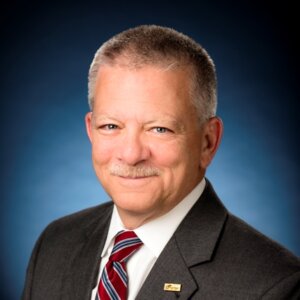 by T. Christian Rollins, MBA, CFRE
by T. Christian Rollins, MBA, CFRE
Chief Development Officer
Samaritan
Warren Buffet and Bill and Melinda Gates have been joined by 139 billionaires, who have taken the “Giving Pledge,” to give away at least half of their wealth to charity. They are not alone. Ninety-five percent of all wealthy Americans contribute to charities each year, and over 62 million US citizens volunteer for a not-for-profit organization.
America is a uniquely generous nation, and – since Benjamin Franklin solicited contributions to build our young nation’s first community hospital – philanthropy has always been a common thread in our country’s culture. (It bears noting that Franklin also led the first effort to offer tax relief in exchange for charitable activity, and – under his Poor Richard pseudonym – wrote, “Liberality is not giving much, but in giving wisely.”)
Ninety-five percent of all wealthy Americans contribute to charities each year, and over 62 million US citizens volunteer for a not-for-profit organization.
According to a 2016 US Trust survey of the wealthiest Americans, 94% of high net worth households want to learn more about charitable giving. Yet, only 5% of those who have discussed the subject with their advisor, reported that their advisor initiated the conversation.
State Street’s 2017 “Heart of Wealth Management Report” found that clients who received charitable planning advice were 40% more likely to have been very satisfied with their advisor.
 Additionally, involving the next generation now is a wise investment. While 90% of inherited assets will leave a firm after the death of a client, 42% of millennial heirs are more likely to stay with the family’s advisor, if the advisor helps with philanthropy.
Additionally, involving the next generation now is a wise investment. While 90% of inherited assets will leave a firm after the death of a client, 42% of millennial heirs are more likely to stay with the family’s advisor, if the advisor helps with philanthropy.
Proactively engaging your clients in the charitable conversation can differentiate you and your practice, enlisting new prospective clients, as well as retaining future generations of existing clients. Affluent clients are looking to their advisors for help beyond tax strategies. By helping them plan ahead, you can avoid the year-end rush to transfer stock, create charitable vehicles, or make last-minute changes.
By making philanthropy a part of your routine discovery process, you create the opportunity to identify and take advantage of potentially significant tax benefits clients may be missing, help them facilitate family philanthropy, pass along their values to future generations, strengthen and sustain their commitment to community, and create and leave a lasting legacy. Make these conversations about their values and beliefs, and help them define their charitable goals. Ask your client if they are currently involved with, volunteer for or have benefited from the programs and services of local not-for-profit organizations. Ask which donations have touched their family, or provided them the greatest personal satisfaction; and if they already have any charitable instruments in place.
Make these conversations about their values and beliefs, and help them define their charitable goals.
Guiding clients through the intricacies of timing (required minimum distributions, year-end strategies, life events, and market value), and gifting the right assets (the win-win of giving appreciated stock, employing the IRA Rollover, or when to use cash, for example), are additional ways in which advisors can demonstrate value.
 Advancing your knowledge of certain charitable estate planning vehicles, and how and when they can be of the most benefit to your clients, will add greater value to your practice. Helping your clients make a greater impact can also help to grow your business. Making charitable planning part of your practice creates opportunities to increase assets, by identifying outside sources.
Advancing your knowledge of certain charitable estate planning vehicles, and how and when they can be of the most benefit to your clients, will add greater value to your practice. Helping your clients make a greater impact can also help to grow your business. Making charitable planning part of your practice creates opportunities to increase assets, by identifying outside sources.
Most of all, remember why donors – your clients – give to charity in the first place. At the end of the day, it has very little to do with taxes. Americans are uniquely generous with their time and treasure, and support organizations making a difference in their local communities. Their charitable intent is genuine.
Please feel free to visit and share our charitable estate planning resources, including our interactive, client and donor-centered worksheet, “A Plan to Match Your Goals.” As always, please feel to contact me directly with any questions or requests, or if ever we may be of service to clients, family, or friends.
Contact Information
Direct: (856) 552-3287
Email: [email protected]
Samaritan Healthcare & Hospice, Inc. is a 501(c)(3), not-for-profit organization (EIN: 22-2344036); headquartered at 3906 Church Road, Mount Laurel, NJ 08054.